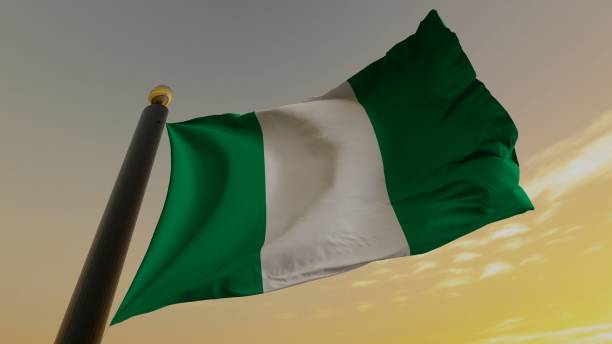
Flag of Nigeria
Nigeria has taken the crown as Africa’s fastest-growing Fast-Moving Consumer Goods (FMCG) market in 2025, recording an impressive 54.1% growth in market value up from 34.3% in 2024 according to data from global analytics firm NielsenIQ.
Despite persistent inflation and currency volatility across the continent, the FMCG sector in Africa is showing signs of broad recovery. The top five FMCG markets: South Africa, Nigeria, Egypt, Morocco, and Kenya collectively represent around $42 billion in FMCG sales.
South Africa’s FMCG sector remains the largest in value, estimated at $27.5 billion with 7.7% growth, but Nigeria is quickly closing the gap with a $25 billion market value fueled by the continent’s most rapid expansion. Egypt follows with $10.2 billion (23.1% growth), while Morocco and Kenya posted $7.5 billion (7.6%) and $3.3 billion (5.5%) respectively.
Nigeria’s FMCG rebound is particularly notable given the economic headwinds experienced in 2024, when transaction volumes dipped by 3.1% and sales volumes fell 10.7%. This year, both indicators have bounced back with transaction growth of 4.8% and volume increase of 5.4%.
“Nigerian consumers continue to show remarkable resilience, with adaptive spending patterns cushioning the impact of inflation and driving value growth,” the NielsenIQ report noted.
Top FMCG Categories Powering the Market
In Nigeria, the top 10 FMCG categories account for nearly two-thirds (64%) of total sales. These include beer, soft drinks, spirits, malted soft drinks, energy drinks, mineral water, detergents, powdered milk, noodles, and biscuits.
Among the fastest-growing segments in 2025 are contraceptives (95.6% growth), flavored milk (84.4%), and biscuits (72.2%). Other rapid growers include mainstream spirits, energy drinks, drinking yoghurt, and coffee, all posting growth rates between 58% and 71%.
Changing Consumer Spending Habits
The report highlights a shift towards prioritizing essentials, with many Nigerians cutting back on discretionary spending.
- Clothing and fashion expenses fell sharply, with 33% reducing spend in 2025 compared to 45% in 2024.
- Home décor and improvement budgets dropped from 42% to 30%, as families focus on repairs rather than upgrades.
- Dining out and food delivery also declined, with more consumers cooking at home to manage costs.
- Spending on snacks and sweets fell from 42% to 31%, reflecting tighter control over impulse buys.
Conversely, spending on essential services continues to rise:
- Education costs climbed to 72% of consumers reporting increased expenses in 2025, up from 69%.
- Transportation expenses rose from 63% to 66%, impacted by rising fuel and public transit costs.
- Utility bills increased, with 62% of Nigerians spending more on electricity and water.
- Grocery and household staple prices remain high, with consistent growth in spending on rice, beans, and cleaning products.
Market Outlook: Rapid Growth Ahead
NielsenIQ forecasts Nigeria’s FMCG sector will expand significantly over the next two years, from ₦12.46 trillion in 2025 to between ₦18.13 trillion (conservative estimate) and ₦23.13 trillion (optimistic scenario) by 2027.
The most substantial growth is expected between 2026 and 2027, signaling sustained momentum as the market adapts to evolving consumer preferences and economic realities.



